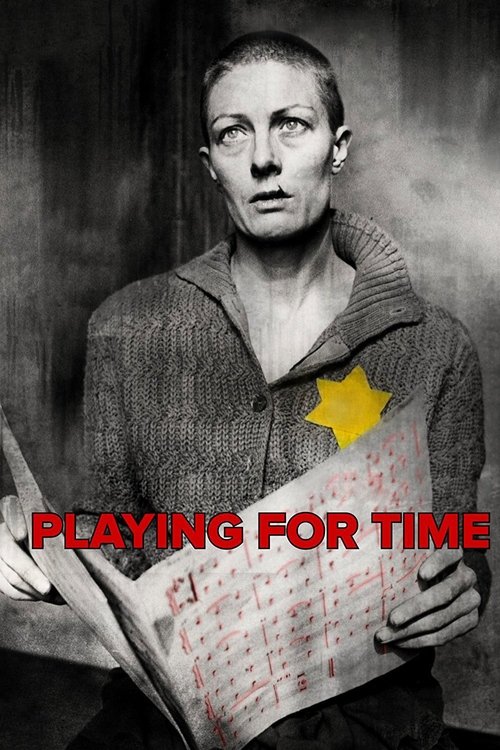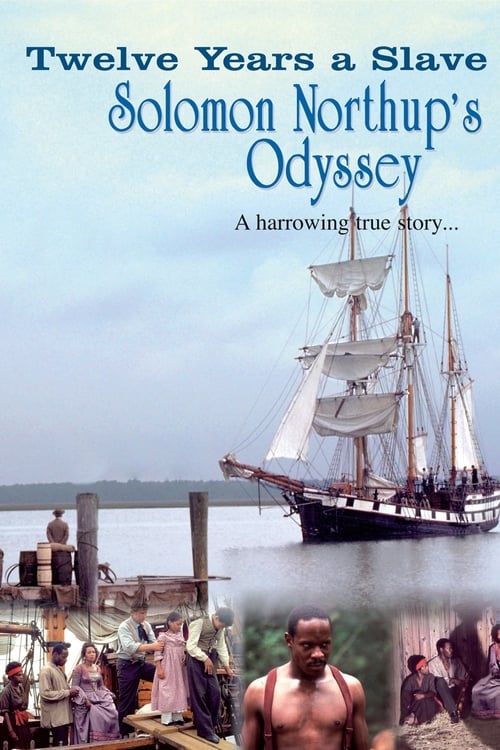
Ask Your Own Question
What is the plot?
The train car is packed, bodies pressed together in the suffocating darkness. It is the early 1940s, somewhere in Nazi-occupied Europe, and the air is thick with fear and the stench of sweat. Fania Fénelon, a French Jewish cabaret singer and pianist, sits among the other prisoners, her mind racing as the train rattles toward an unknown destination. She had been arrested in Paris for her involvement with the French underground resistance, and now, like so many others, she is being deported to Auschwitz. The journey is a blur of exhaustion and dread, the only certainty being that their lives are no longer their own.
When the train finally stops, the doors are wrenched open, and the prisoners are herded out into the cold, gray light of dawn. The scene is chaotic--guards shout orders, dogs bark, and the air is filled with the sounds of weeping and confusion. Fania is pushed forward with the others, her belongings confiscated, her clothes stripped away, and her head shaved. The dehumanization is immediate and brutal. She stands naked and shivering, her identity stripped from her, reduced to a number.
The processing area is a nightmare of efficiency. Prisoners are sorted, their personal items taken, and their heads shaved. Fania watches as the world she once knew is erased, replaced by the stark reality of the concentration camp. She is assigned to a barracks, where she meets other women, all struggling to survive in this new, terrifying world. Among them is Clara, a fellow prisoner who becomes Fania's first friend in the camp. They cling to each other in those early days, sharing a dormitory and trying to make sense of their new reality.
As the days pass, Fania begins to hear whispers of a women's orchestra within the camp. The Women's Orchestra of Auschwitz, led by Alma Rosé, is a group of female musicians who have been spared from hard labor and the gas chambers in exchange for performing music for their Nazi captors. Fania, with her background as a classical pianist and cabaret singer, is recognized as a talented musician and is soon recruited into the orchestra. The opportunity to join the orchestra is both a blessing and a curse--it offers a chance to survive, but at the cost of dignity and freedom.
Alma Rosé, the conductor and leader of the orchestra, is a formidable figure. She is authoritative and commands respect among both the prisoners and the guards. Alma's leadership is strict, but she is also protective of her musicians, doing everything she can to ensure their survival. Fania quickly learns that Alma's authority is a double-edged sword--while it provides a measure of safety, it also comes with the burden of responsibility and the constant threat of punishment.
Fania's life in the orchestra is a strange mix of privilege and torment. The musicians are given slightly better conditions than the other prisoners--they are allowed to live in a separate barracks, receive extra rations, and are spared from the worst of the camp's brutality. But their survival is contingent on their ability to perform for the Nazis, and the psychological toll of playing music for their captors is immense. The orchestra rehearses and performs classical pieces, including Puccini's Madama Butterfly, which Fania is asked to sing. The music is both a lifeline and a source of anguish, a reminder of the culture and humanity they are fighting to preserve.
One day, Fania hears a guard asking if any prisoner can sing Madama Butterfly. She steps forward, her voice trembling but determined. The guard is impressed, and Fania is given a chance to audition for the orchestra. She performs with all the skill and emotion she can muster, and Alma Rosé is convinced of her talent. Fania is officially inducted into the orchestra, and her fate is sealed.
As Fania settles into her new role, she forms close bonds with the other musicians. Among them is Marianne, a fellow prisoner and friend whom Fania convinces Alma to include in the orchestra despite Marianne's poor singing audition. Fania's plea is a desperate attempt to save Marianne from the horrors of the camp, and Alma reluctantly agrees. The inclusion of Marianne is a small victory, but it also highlights the lengths to which the prisoners must go to protect each other.
The orchestra's performances are both a survival mechanism and a source of psychological torment. The women play music for the Nazi officers and guards, their performances a grotesque parody of normalcy in the midst of unimaginable horror. The music is a form of communication, a way for the prisoners to assert their humanity in the face of dehumanization. But it is also a tool of subjugation, a reminder that their survival is tied to their ability to entertain their captors.
As the months pass, the strain of performing for the Nazis takes its toll on the musicians. The constant threat of death looms over them, and the loss of dignity is a heavy burden. Fania and the other members of the orchestra struggle with the moral complexity of their situation, torn between the desire to survive and the need to maintain their sense of self. Alma Rosé's leadership is a source of both strength and tension, as she tries to balance the needs of her musicians with the demands of their captors.
Fania's relationship with Marianne is a source of comfort and conflict. Marianne's poor singing is a constant source of tension, and Fania's efforts to protect her friend are tested by the harsh realities of camp life. The two women cling to each other, their bond a lifeline in the midst of despair. But the strain of their situation is evident, and the question of whether survival is worth the cost of their dignity is a constant presence.
The orchestra's performances are a mix of beauty and horror. The women play music for the Nazi officers, their performances a grotesque parody of normalcy in the midst of unimaginable horror. The music is a form of communication, a way for the prisoners to assert their humanity in the face of dehumanization. But it is also a tool of subjugation, a reminder that their survival is tied to their ability to entertain their captors.
As the war drags on, the situation in the camp becomes increasingly desperate. The threat of death is ever-present, and the loss of dignity is a heavy burden. Fania and the other musicians struggle with the moral complexity of their situation, torn between the desire to survive and the need to maintain their sense of self. Alma Rosé's leadership is a source of both strength and tension, as she tries to balance the needs of her musicians with the demands of their captors.
The climax of the film is emotional and psychological, focusing on Fania's reflections on survival, loss, and the human spirit under extreme oppression. There is no violent final confrontation--rather, the climax is a series of emotional confrontations, as Fania and the other musicians grapple with the cost of their survival. Fania's voiceover or final statements underscore the cost of survival and the haunting memories of Auschwitz.
The film ends with the orchestra continuing to perform, symbolizing endurance. Fania's voiceover or final statements underscore the cost of survival and the haunting memories of Auschwitz. The women's music is a testament to their resilience, a reminder that even in the darkest of times, the human spirit can endure. The final scenes are a poignant reminder of the cost of survival and the enduring power of music in the face of unimaginable horror.
More Movies Like This
Browse All Movies →What is the ending?
In the ending of "Playing for Time," the main character, Fania Fenelon, and her fellow musicians face the grim reality of their situation in the concentration camp. As the war nears its end, the musicians are forced to perform for the Nazis, but they also find moments of solidarity and resilience among themselves. Ultimately, Fania survives the camp, but many of her friends do not. The film concludes with a poignant reflection on the power of music and the human spirit in the face of unimaginable suffering.
As the film approaches its conclusion, the atmosphere in the concentration camp grows increasingly tense. The musicians, led by Fania Fenelon, are aware that the war is nearing its end, and the fate of the camp hangs in the balance. The camp is filled with a sense of dread, as the Nazis become more desperate and violent.
In one scene, Fania and her fellow musicians gather in a dimly lit barrack, their faces etched with exhaustion and fear. They share stories and memories of their lives before the camp, their laughter mingling with tears. This moment of camaraderie serves as a brief respite from the horrors surrounding them, highlighting their shared humanity. Fania, in particular, feels a deep sense of responsibility to keep the spirit of music alive, believing it can provide solace amidst the chaos.
As the days pass, the musicians are forced to perform for the Nazi officers, who are increasingly erratic and brutal. During one performance, Fania plays with a fervor that reflects her inner turmoil. The music becomes a means of survival, a way to momentarily escape the grim reality of their existence. However, the tension escalates when one of the musicians, a close friend of Fania, is taken away by the guards, never to return. This loss weighs heavily on Fania, deepening her resolve to survive and honor her friend's memory through music.
In the final scenes, the camp is liberated by Allied forces. The atmosphere shifts dramatically as the sound of gunfire and chaos fills the air. Fania and the remaining musicians are filled with a mix of hope and fear. They witness the collapse of the Nazi regime, but the cost of survival has been steep. Many of their friends and fellow musicians have perished, leaving a profound sense of loss.
As the dust settles, Fania emerges from the camp, a survivor among the ruins. She carries with her the memories of those who did not make it, and the weight of their stories becomes a part of her own. The film closes with Fania reflecting on the power of music to transcend suffering, a bittersweet reminder of the resilience of the human spirit. The final image is one of Fania, standing amidst the remnants of the camp, her face a mixture of sorrow and determination, symbolizing both the tragedy of the Holocaust and the enduring strength of those who lived through it.
Is there a post-credit scene?
The movie "Playing for Time," produced in 1980, does not have a post-credit scene. The film concludes with a poignant ending that encapsulates the emotional journey of the characters, particularly focusing on the experiences of the women in the concentration camp and their resilience through music. The narrative wraps up without any additional scenes after the credits, leaving the audience to reflect on the powerful themes of survival, art, and humanity in the face of unimaginable adversity.
What role does the character Fania Fenelon play in the story?
Fania Fenelon, portrayed by Vanessa Redgrave, is a Jewish musician and singer who becomes a central figure in the narrative. She is a talented pianist and vocalist who is taken to Auschwitz during the Holocaust. Throughout the film, her passion for music becomes a means of survival as she navigates the horrors of the concentration camp.
How does music serve as a means of survival for the characters in the film?
In 'Playing for Time', music serves as a lifeline for the women in the concentration camp. Fania and her fellow musicians are forced to perform for the Nazi officers, which provides them with a temporary reprieve from the brutal conditions of the camp. The emotional weight of their performances highlights their resilience and the power of art in the face of despair.
What is the significance of the relationship between Fania and the other women in the camp?
The relationship between Fania and the other women, including her fellow musicians, is pivotal to the story. They form a bond through their shared experiences and the love of music, which fosters a sense of community and hope amidst the bleakness of their surroundings. This camaraderie is essential for their emotional survival and highlights the strength of human connection.
How does the character of the camp commandant affect the musicians?
The camp commandant, portrayed as a cruel and indifferent figure, exerts a significant influence over the musicians. His whims dictate their fates, and his presence serves as a constant reminder of the danger they face. The musicians must navigate his unpredictable behavior, which adds tension to their performances and underscores the precariousness of their situation.
What challenges do Fania and her fellow musicians face while performing?
Fania and her fellow musicians face numerous challenges while performing, including the pressure to meet the expectations of the Nazi officers, the threat of violence, and the emotional toll of playing in such a horrific environment. They must balance their desire to express themselves through music with the constant fear of punishment, which creates a complex dynamic of hope and despair.











































